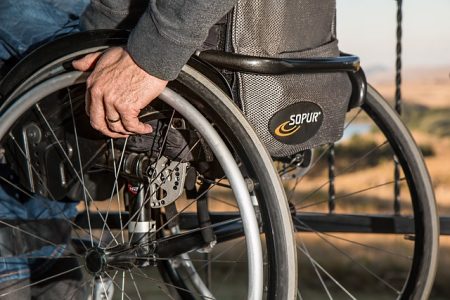
Living wills and the right to refuse life sustaining medical treatment
Source: Bangkok Post (https://www.tilleke.com/wp-content/uploads/2011/07/2011-jul29-living-wills.pdf)
Image by Steve Buissinne from Pixabay
Everyday, you control your health and finances. You decide whether to go to the doctor when you become ill or injured. You also decide whether to purchase, sell or gift your assets. In case of severe sickness or injury or death, the law must take over to best carry out your wishes.
In our July 15 column we discussed the importance of drawing up your will. Today we will discuss living wills and the right to refuse medical treatment.
For the first time in Thailand, the right to refuse medical treatment is expressly provided under the Thai law. The Ministerial Regulation prescribing the rules and procedures for living wills took effect on May 20, 2011. The Ministerial Notification was issued under the Section 12 of the National Health Act of 2007, which endows a person with the right to make a living will.
Before we define a living will, it is important to note certain characteristics and limitations of the instrument.
First, a living will should not be confused with a last will and testament, which provides for the distribution of an estate or assets. A living will has nothing to do with property.
Second, a living will does not allow euthanasia or mercy killing. Medical practitioners are not authorized to cause the death of their patients by performing an affirmative act, such as a lethal injection. Moreover, doctors retain the duty to relieve pain and perform other aspects of palliative care. The National Health Act of 2007 and the Ministerial Regulation relieve a healthcare provider of criminal and other liability only where the provider acts accordance with the law, the regulation and the particular living will.
Third, a living will under Section 12 of the National Health Act does not include a medical or healthcare power of attorney, by which an individual may appoint an agent or proxy to make decisions regarding his or her health care and medical treatment in specified circumstances. Instead, the living will is a legal document through which a person may inform medical care providers, friends and family members of his or her medical wishes, in the event that he or she is unable to communicate these wishes due to a serious illness or injury.
Meaning of a living will: A living will is also referred to as an advance directive, healthcare directive or physician’s directive. It allows a person to make two choices in advance and in writing to (1) refuse health treatments provided merely to prolong his or her “terminal stage of life” or (2) refuse health treatments so as to cause the person to cease physical or psychological suffering caused by injury or incurable disease.
The “terminal or final stage of life” is specifically defined in the Ministerial Regulation, but can be understood by laypersons to include conditions caused by injury or incurable disease that lead to imminent death or that result in the permanent loss of brain function, which renders the person unable to communicate or comatose.
Living will requirements:
A living will may be made by any person age 18 or older (referred to as a “declarant”) and should contain the following components:
– The declarant’s full name, age, Thai identification number, and address or contact number.
– The date the living will was made.
– The full name and Thai identification number of the witness(es) and the relationship of such person(s) with the declarant.
– The type of health care that the declarant does not wish to receive.
– The full name and Thai identification number of the writer or typist (if the letter is written by another person).
– The signature (or thumbprint, if necessary) of the declarant, witness(es), and writer or typist.
The National Health Commission Office of Thailand provides guidelines on the types of treatments that may be refused in a living will, including resuscitation, mechanical ventilation, nutritional and hydration assistance, and dialysis. If a patient is pregnant, her wishes will be followed after the birth of her child.
The intent of the declarant: Before performing under a living will, doctors must verify the patient’s intent. Per the Ministerial Regulation, such intent may be confirmed by the patient or, in the event that this is not possible, by witnesses or the patient’s relatives. As such, it is important for patients to tell their relatives and loved ones about their living will and their wishes for medical treatment. In sum, patients are now entitled to have their living will enforced and to refuse health services that would prolong their terminal stage of life or to refuse health services in order to end their suffering. Thai law now gives patients the freedom to choose and the freedom to refuse medical treatment during the most critical time of their life.
This article was prepared by Noppramart Thammateeradaycho, attorney-at-law, and Jennifer Erickson, consultant, Dispute Resolution Department, Tilleke & Gibbins. Please send comments to Andrew Stoutley at andrew.s@tillekeandgibbins.com
